One could say that the presence of the guitar in contemporary jazz is simultaneously ubiquitous and underexplored. With that in mind, Pakistan-born guitarist Rez Abbasi has spent three decades proving that the instrument contains multitudes beyond conventional expectations. Born in Karachi, Pakistan, and transplanted to Los Angeles at age four, Abbasi absorbed the sprawling musical possibilities of Southern California before pursuing formal jazz education at USC and Manhattan School of Music. A transformative study period in India with tabla master Ustad Alla Rakha in 1989 introduced Abbasi to rhythmic complexities that would reshape his philosophy of musical time and space.
Abbasi's seventeen albums chronicle a restless artistic intelligence. His 2021 Guggenheim Fellowship recognized a body of work that has consistently placed him alongside Bill Frisell and Pat Metheny in DownBeat's International Critics Poll since 2014. His newest release, Sound Remains, marks a homecoming to the acoustic guitar work that first established his reputation. The album reunites his longstanding Rez Abbasi Acoustic Quintet (RAAQ)—featuring vibraphonist Bill Ware, bassist Stephan Crump, and drummer Eric McPherson—while expanding the lineup with master percussionist Hasan Bakr, whose Gullah-Geechee heritage adds a new texture to the group's already remarkable chemistry.
The addition of Bakr proves Abbasi's ongoing interest in diverse percussion styles. His choice of steel-string acoustic guitar throughout the album—an unusual instrument in jazz contexts—offers an intimacy where every plucked note and struck surface adds another layer to the rhythm. Sound Remains is also a reflection on the recent passing of Abbasi's mother, to whom the album is dedicated. The compositions explore themes of impermanence and presence, drawing from decades of meditation practice that inform both his spiritual life and musical philosophy.
Rez Abbasi recently appeared on the Spotlight On podcast. In his conversation with host Lawrence Peyer, Abbasi discussed the album's exploration of Latin percussion traditions, the role of meditation in his creative process, and how the concept of impermanence continues to shape his music and life.
You can listen to the entire conversation in the Spotlight On player below. The transcript has been edited for length, clarity, and flow.
Lawrence: Sound Remains is the new record with RAAQ, the acoustic quartet, with the addition of a percussionist. What led you to expand the group this time?
Rez: I've always wanted to do something in a sort of Latin percussion avenue. I mean, I've done it with Indian music with tabla and various Indian percussion instruments. But the Latin thing—I don't know, there's something different about it.
It’s not only the feel, obviously, though that's the number one thing, but the sonority of the way it’s played. All these instrumentalists play with their fingers. But I think with the Latin side, and I'm not an expert at this, but they kind of hit it with the side of their palm sometimes, and it's just a different reflection of a skin percussion instrument.
And then there’s the tradition of it all. When you find these percussionists, they generally teach you a few things from the Latin world or the African world. And that's something I've always been interested in. I've done some research into it, but not nearly as much as I feel I should have.
Lawrence: Are you mainly exploring this for the purpose of understanding the percussion style?
Rez: Oh, no, definitely not just for that purpose. The music has to engineer itself towards that feeling, and a lot of it has a kind of triplet feeling. It also has to do with the personnel in the group. This is the third record we’ve done with this group so far, and it’s a very percussive ensemble, given that it features a vibraphone, which is a percussion instrument in some sense, and a guitar, which is plucked. That's very percussive. Eric McPherson is on drums, and Stephan Crump is a very percussive bass player. He's very funky, and he digs in.
Interestingly enough, as percussive and funky as Eric McPherson is, he plays with a lot more space than many drummers. I don't even know how Eric does it, to be quite honest. He is open-ended in his approach to drumming, and it's a great thing for a lot of music. When I started writing this project, I thought it'd be great to have Eric do his thing, which I'm pretty familiar with, along with a percussionist who can accentuate Eric and fill in the gaps. So I did hear a denser way of approaching this record.
Lawrence: Two of the album’s tracks that grabbed my attention as a listener were "Folk’s Song” and "Spin Dream." They really highlight that guitar-vibes interplay. Could you tell me about those two tracks?
Rez: "Folk’s Song" is dedicated to my parents, but really all ‘folks,' if you know what I mean. I originally called it "My Folks’ Song,” and then I thought, "Well, you know, everybody has this feeling for their folks."
And so my parents were going through a lot before my mom passed. I was visiting a lot, and I started writing this tune, which became a dedication I had to finish for them. I decided to do it as a duo because, again, I wanted that sort of spatial quality. I'm sure it would work as a group song, but there's something—the bareness of just hearing vibes and guitars is really beautiful.
Then, in "Spin Dream," that was a title that I didn't come up with. The actual title was something one of my late friends came up with. He was going to create a film company called Spin Dream. He was one of my best friends, so I figured he'd be okay with me borrowing it now that he's not using it, if you know what I mean. So it's sort of like a personal dedication to him.
For that tune, I just came up with the first groove on the guitar. I thought it sounded nice to go from those two chords—E major seven to F major seven with the open strings on top. And this is what makes the guitar so great compared to the piano. The piano has great idiosyncrasies, for sure. But the guitar is cool because, in a way, you can push notes down, but you also have these open strings.
I'm really trying to compose with a lot of the open strings now, more than ever. People like Ralph Towner and Bill Frisell have been very influential to everyone when it comes to those open-string, chordal meshes or harmonic movements.
Lawrence: You talk a lot in the press material for the record about the notion of impermanence. You know, as a man of a certain age, as I am, that notion of impermanence starts to become a little bit of a constant companion. What does the role of that impermanence and what is that sort of travel companion saying to you at this point? And how is that informing your work?
Rez: Well, I don't know if it's informing my work as much as my overall life. You know, music is music, and when I hit the guitar, there are decades of history that I can't get rid of, nor do I necessarily want to get rid of. I want to implement it with new stuff. So that's sort of a sidebar, but life in general, I guess, the way it affects my music is to basically remind myself not to be too attached to the music, but also to anything.
It's the spiritual route that I've taken for decades, although I must readily admit that it’s challenging for me to implement as a human being. I think it is for most people on the path. The idea that you have an outside life and an inside life. The inside life is telling you that the outside life is pretty impermanent, so don't get too stressed. Don't take it too seriously if an opportunity doesn't come through, which happens all the time in music.
The idea is to lessen the egoic mind, if you will, which is really just the mind altogether. It's not a separate part of the ego, or a separate part of the mind. It's really just the mind. You lessen those attributes in daily life and allow yourself to realize that impermanence is not a bad thing because it's something that no one wants to talk about. It doesn't really register with the way you move through life.
We're not walking around saying, "Oh, hey man, look at that sunset. This isn't permanent." And there's a good reason why we don't do that either. I'm not saying that's something you should do, but you know, when you lose someone as close as a parent that you love dearly, like you said, it's a constant companion. After that, it's through that person that you lost that it becomes a reminder of impermanence.
And so for me, I've grappled with impermanence for literally twenty or thirty years now. This album is dedicated to my mom, as well as to the idea of impermanence and how I’ve dealt with it through meditation, contemplation, reflection, and self-inquiry.
It's not just about career, which is really petty in the scheme of things, especially with what's going on in the world right now. Like, am I really going to think about, "I didn't like my solo"? I’m not saying that’s not important to me, but it really is not important to anybody else.
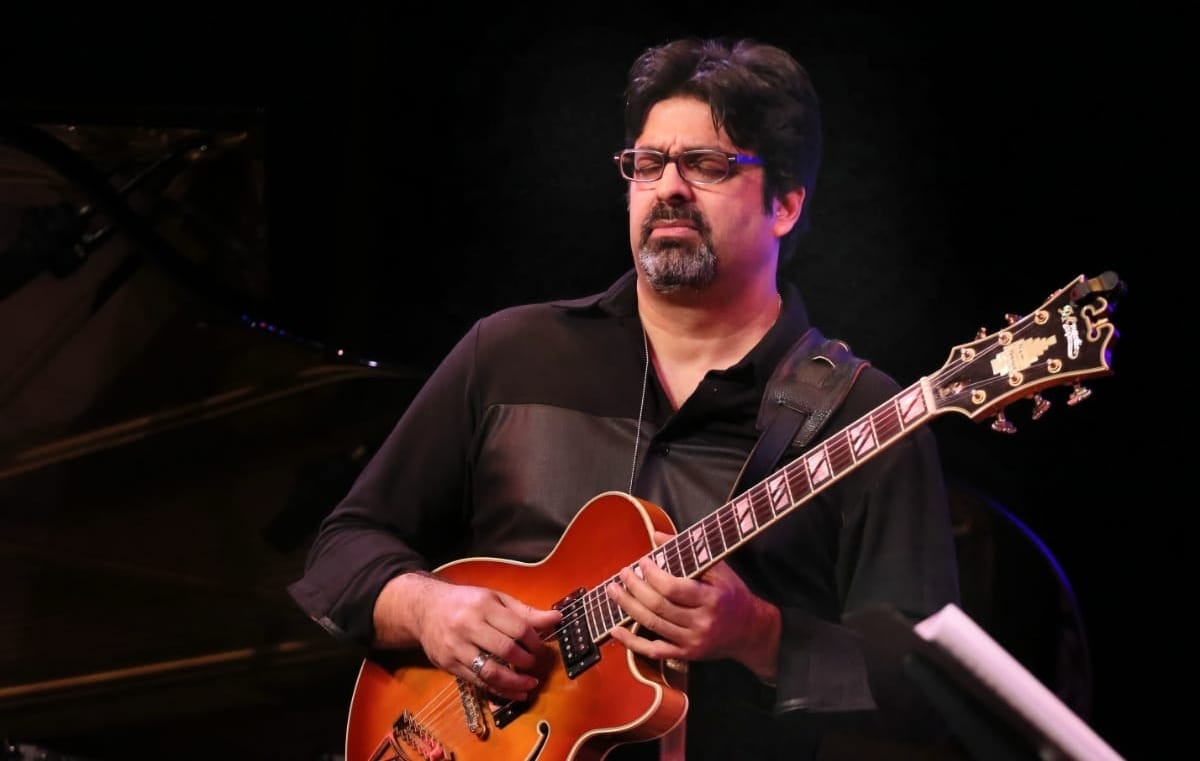
Lawrence: It seems like there's a lot of value in that mindset as a musician who works in improvised realms. I would think it would allow you so much freedom as an improviser. Have you felt that in your music, as you've grown in your practice?
Rez: I'm very lucky to be able to have this music—and when I say this music, I mean jazz and improvisational music—as a tool to habituate and reprogram myself as to what the spiritual path really calls for, which is less ego and letting go and non-attachment. It's easy to get tied up in your own playing. I'd love to talk to more musicians about this because it's something I don't talk about that often, except with a few close friends I have.
Bill Frisell articulated something I've been thinking about for years, and I hear it in his playing. He said that sometimes it takes a lifetime to stop thinking about your own playing and really just listen, without focusing on yourself. When I read that, I was like, "Oh my God, that's a really great way to just place what I've been sort of thinking about for years in sort of one sentence."
And it's true. When you're playing, how much are you self-absorbed as compared to environmentally absorbed or musically absorbed? That's the most important aspect for me of playing jazz, particularly because it is such a collective, improvisational music. Even if there's a form or a standard, or whatever, versus completely free improv, it’s very much the same attitude, if you ask me.
The great thing is that it’s become such a fantastic tool for filtering this experience. Now, unfortunately, a lot of people won't even think like that. Or maybe fortunately, I don't know. But it takes a lot to get to that point of letting yourself sound bad in a situation because no one wants to sound bad. I mean, I don't know one person on earth that I could say, "Hey, would you like to sound bad on your solo tomorrow?" Absolutely not.
And that is something you've got to embrace wholeheartedly. That's the hard part. You have to embrace it to move through it and past it. It's almost a conundrum. It's tough. The mind really gets in the way.
Lawrence: I would imagine that as a developing player, one must reach the point where you want that transcendence and letting go, but before you learn to do it, it must be the most terrifying prospect. What will happen if you’re not in control?
Rez: Exactly. And that sort of expands into daily life in general. Not just music, but the control aspect. Do I have insurance? Do I have enough money in my bank account? What's going to happen? Your imagination can very much be your worst enemy, you know?
And that's not to say, sit around and not think about the future. No, it's not like that. I mean, if I want to play a solo over “Giant Steps" better, I'm going to sit down and practice "Giant Steps." I'm not going to just think about it. That's a very basic example, but that's kind of what's going on here. You do have to sit down and think about the future, but the idea of me wanting to play "Giant Steps" now if I sit there and think about it twenty-four seven when I'm not actually playing, that's when it gets off the rails, and that's not healthy.
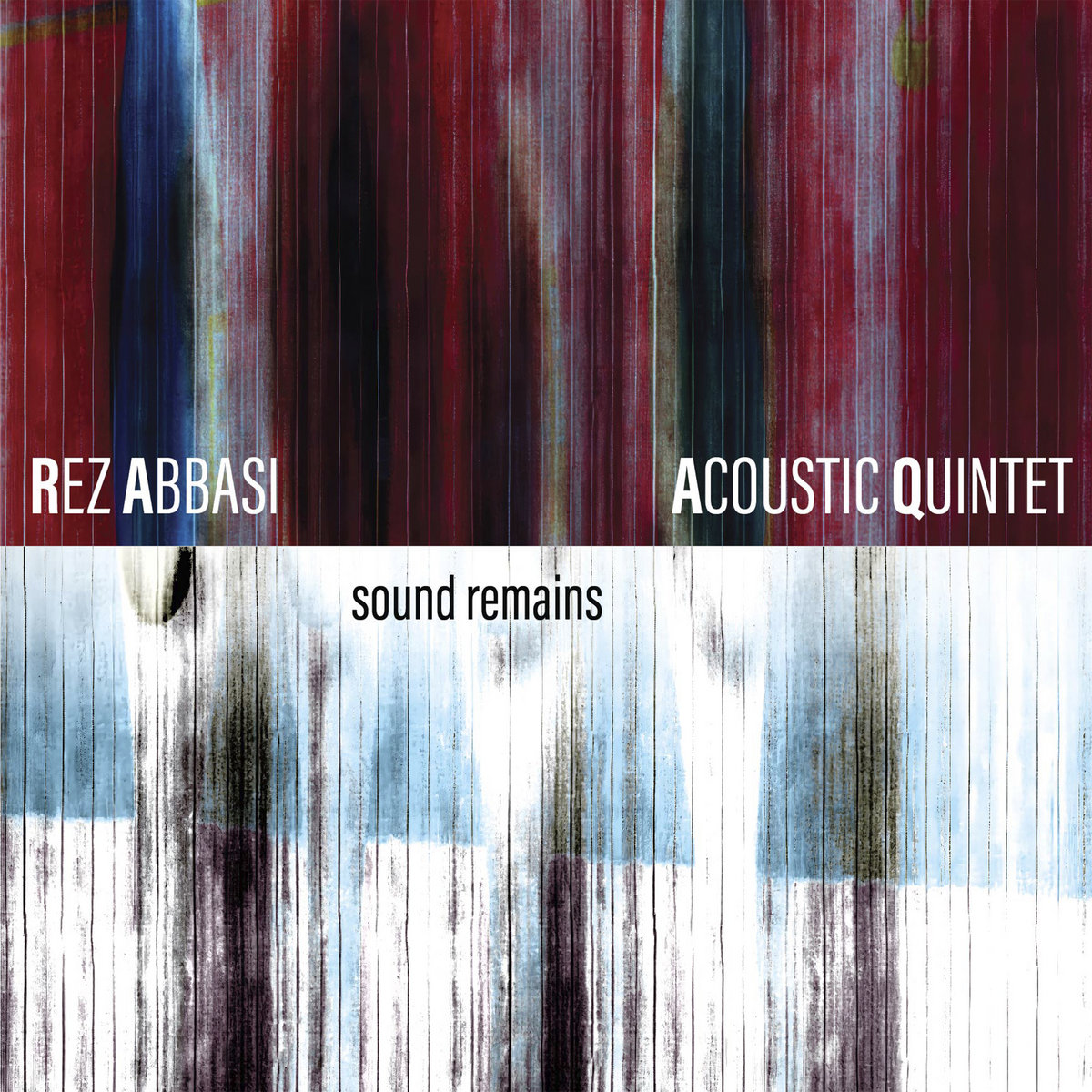
Lawrence: Tell me about the album's title. Tell me about Sound Remains.
Rez: Sound Remains came from the idea of my meditation experiences, which I'm still sort of grappling with. I'm my worst enemy when it comes to this. I sit down and meditate every day. I know where I want to be, which is already sort of the antithesis of meditation. It's not about where you want to be, but it gets deeper and more refined as time goes on.
When I do get into those states of nothingness, I notice how everything stops except for sound, and that's why it's called Sound Remains, because I'm still using my sense of listening. It's hard to describe because you get into that state, and it doesn't necessarily last that long. But these are the states that all the yogis have talked about for millennia—that state that is sort of beyond thought and intuition. It’s just ‘being,' and I always noticed that sound is the last thing that goes. I still hear something.
It’s a metaphor in some ways for listening to music. I didn't mention this in the liner notes, but that’s also the reason I called it Sound Remains: it seems that more and more, I see people listening as a sidebar. It's background music. Even myself, I hate to say it—God, this is hard to admit—but I used to actually listen to one or two albums a day, and sit there listening to the whole thing and say, "Wow."
When you listen to music, it's good to try actually to listen to the music. And that's where the title partly comes from, the Sound Remains. It's just the sound. I'm not thinking about tomorrow, I'm not thinking about yesterday. I'm not thinking about, "Oh, I should practice that." I'm just listening, and whatever it shows me, it shows me without any thought.
So it's based on this idea of sort of separating your thoughts from the actual doing of things, you know. Very Zen, but it's beyond just—it's Zen and it's yogic and it's not necessarily Buddhism or anything. It's all of that—it's Hinduism, Buddhism, and yogic tradition.
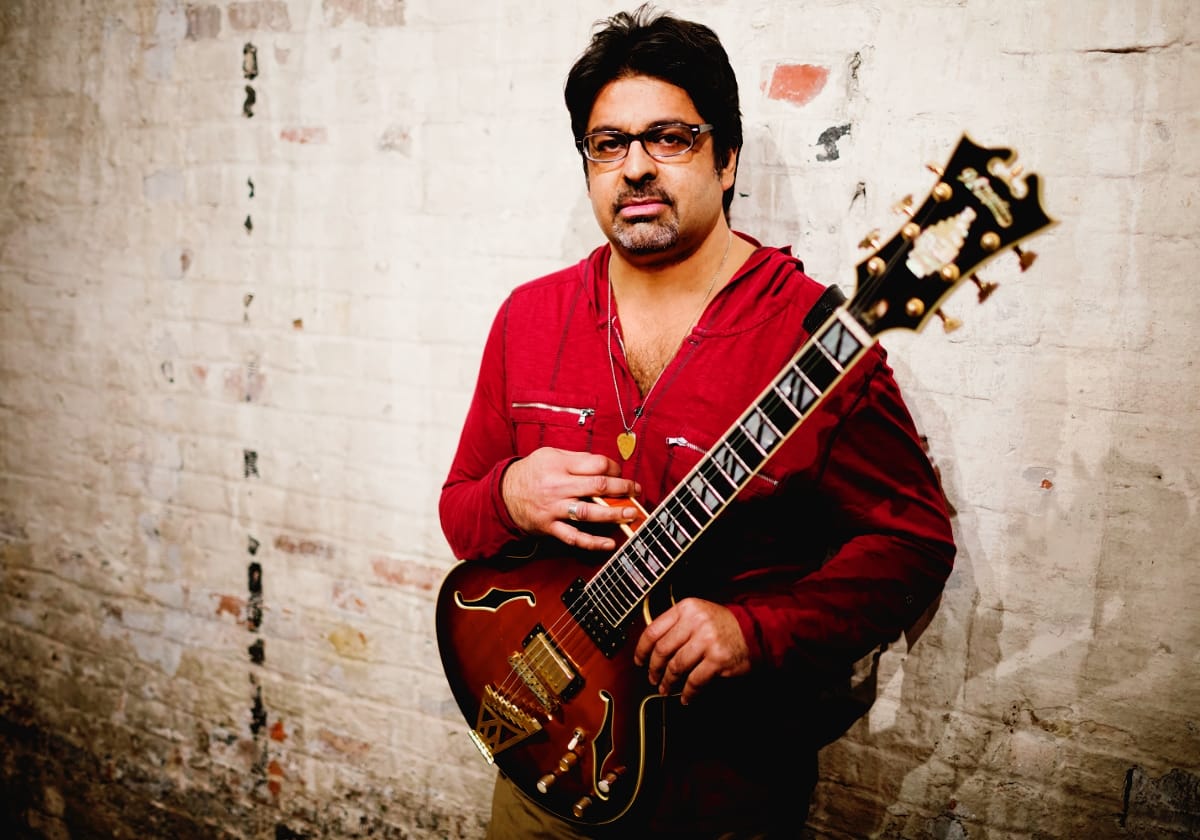
Lawrence: I realize this is a little bit like peeling back your head and peering inside, but how do these concepts make their way into your music? I understand intention plays a role, but is there a functional role?
Rez: Well, that's the million-dollar question. I mean, if I were to answer that, it won’t be the right answer. I'll walk away and say, "Wait, that wasn't right." How do we contextualize or quantify all that? How do we do all that while we're doing it? It's sort of like the intuition that we have, that each individual has, is so made up of our compound experiences and the conditioning we had growing up.
And this is veering off into a different subject, but that’s not even including the idea of reincarnation. I’m not sure if I believe in reincarnation. What does that mean? Whether I believe it or not, it doesn't matter if it exists or not. It doesn't have anything to do with my belief in it.
So, if reincarnation does exist, if that was part of a cycle we go through, then what are we dealing with here? Then we have lifetimes of experiences within this body. Now this is one way of thinking of it or approaching it, that we have so many lifetimes that we're grappling with. And what does that mean for subconsciousness? I mean, we're surface-level thinkers. Most of us just enact our lives through the surface. But every day that goes by is punctuated by our subconscious. Whether we realize it or not, our subconscious mind is powerful.
So what is the subconscious? Is it lifetimes of stuff? That makes you think like, okay, so was Beethoven reincarnated into Keith Jarrett? You know what I mean? It starts making you wonder how these eight-year-old kids are phenomenal players. How is that possible when someone else has been doing it for twenty years and they don't come close?
So these are just ideas. That's the long answer to why it's hard to state anything specific in terms of how it goes in my compositions. But let's just say we don't reincarnate and we're just here now—then it’s conditioning for sure. You know, the way you grew up, the way things influence you, and who you're influenced by. All that stuff paves the road to what you're going to end up saying as a musician.
Lawrence: You know, it seems to me your body of work is pointing in a direction of like, "See what the guitar can do." To see how good the guitar can be.
Rez: Oh, that's interesting. Maybe some subconscious little chip on the shoulder. That's why I play acoustic. I play fretless guitar. Electric is maybe what I'm known for, but I've done several records, and now an acoustic one. I’m saying it's not like a choice. "Oh, this—I'll do an acoustic album.” It's rarely like that. It's sort of like, what does the music need?
For instance, we did "Questar," you know, that's the Keith Jarrett tune, and I just hear that on an acoustic guitar. I don't think it would work as well on an electric guitar. I don't know why.
Lawrence: And you seem to have heard "Lonnie's Lament" on a fretless guitar, which was really kind of cool.
Rez: Exactly. Because there's got to be a reason to play these tunes, you know? For me, the reason is to show the underutilization of the guitar. Maybe this is what you're bringing out in me right now, but I want to show the aspect of different guitars on this music that we all love and that hasn't been done on guitar. Like on "Lonnie's Lament”—I’m sure there are versions out there. I’m not saying it's never been done, but using the fretless guitar was the reason I recorded it. If it wasn't for that idea, I probably wouldn't have picked that tune.
I love the tune, but I'm not going to play it on an electric guitar. That would be fun, but it wouldn't get to that mixed level of expectation, you know? Now, as you listen to “Lonnie’s Lament,” it’s suddenly like, "Whoa, listen to that—the way he approached that note microtonally." There's another level of magic in there, and what I'm looking for in all my music is another level of magic.
Magic is already in the music. That's not a problem. You can keep putting out tons of records that have magic. If you just keep on pushing and find a little bit more magic—ten or twenty percent more—then I think you're onto something. There are many musicians who are doing that and many musicians who are not doing that. It’s a mixed bag out there.
Check out more like this:
 The TonearmLawrence Peryer
The TonearmLawrence Peryer
 The TonearmLawrence Peryer
The TonearmLawrence Peryer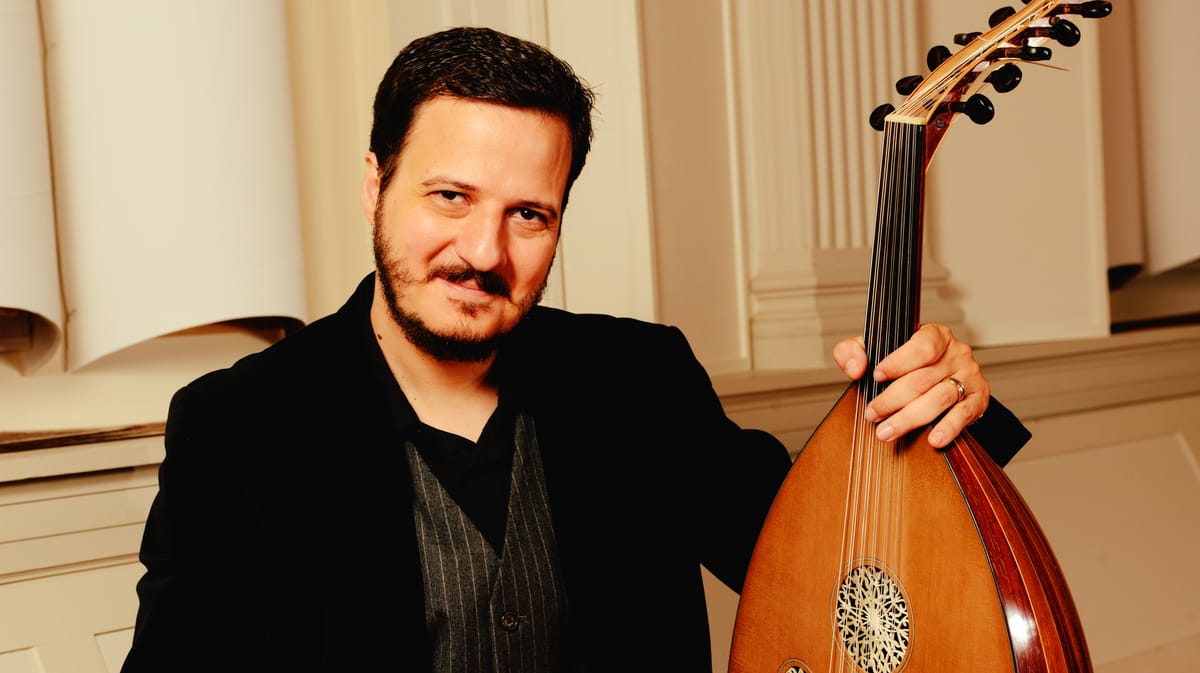


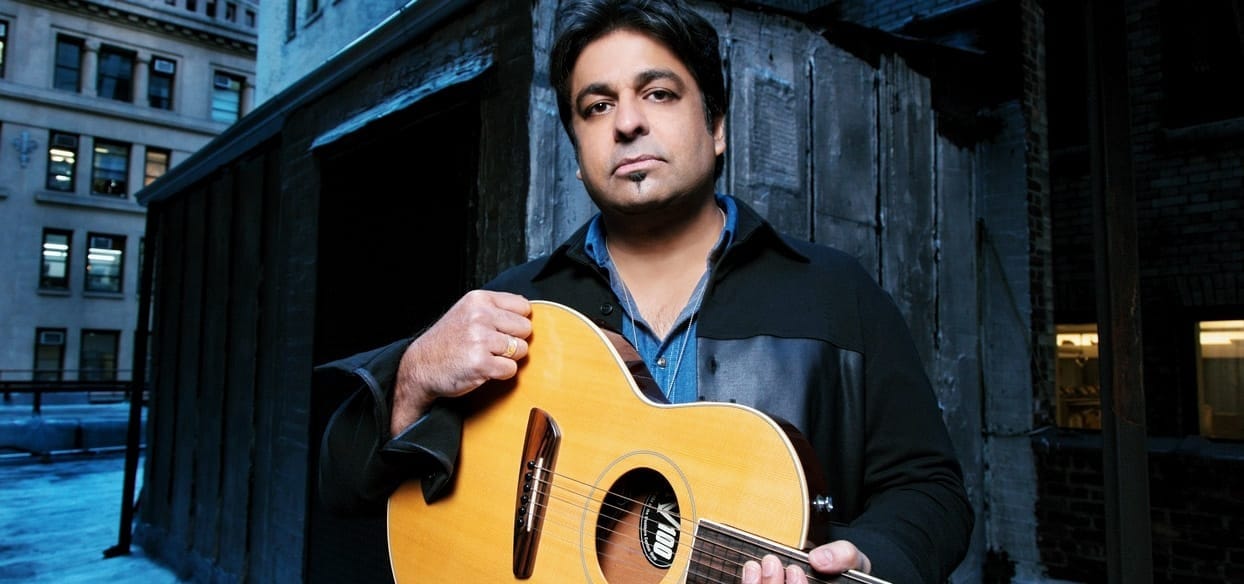
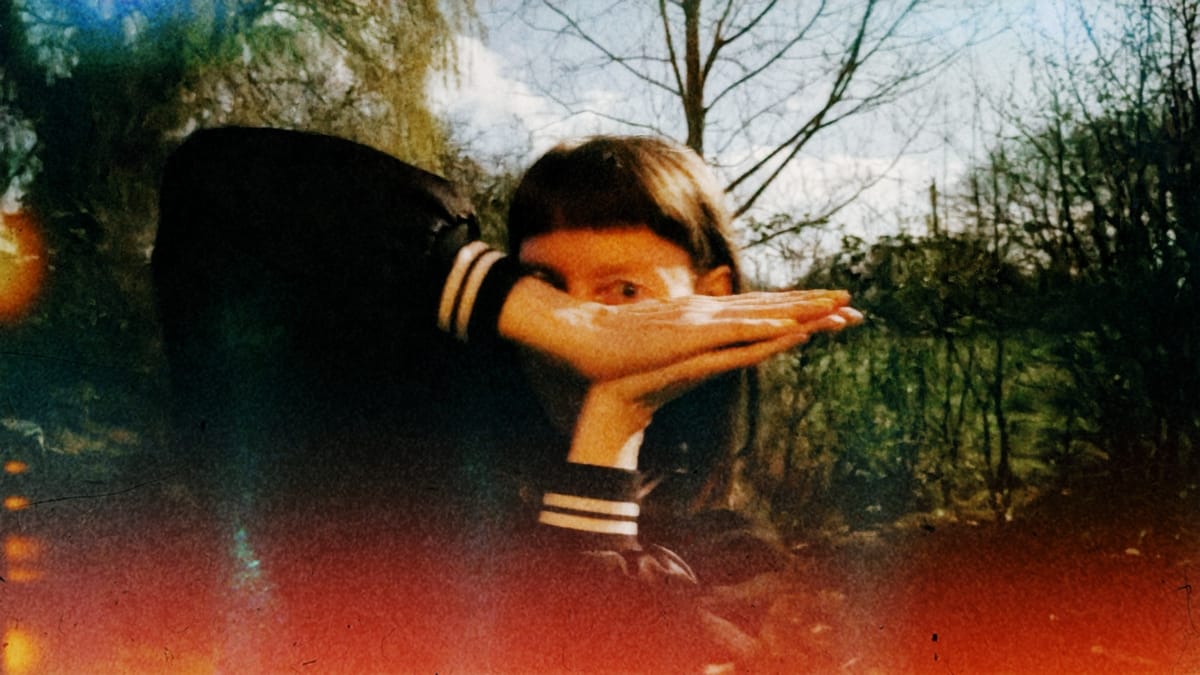
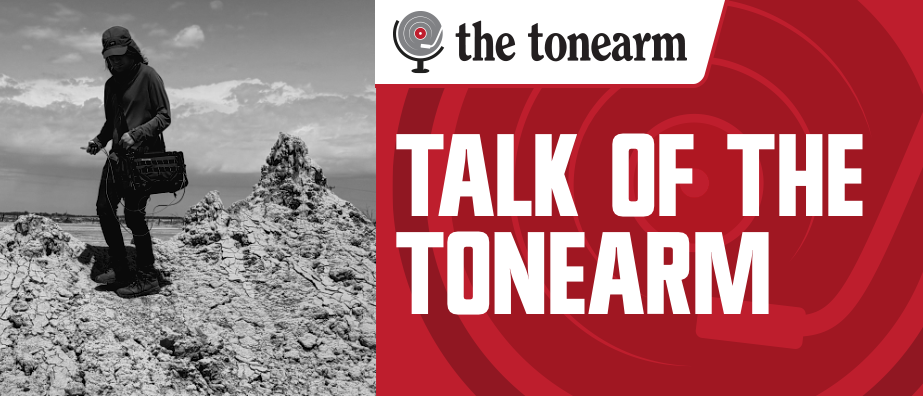

Comments